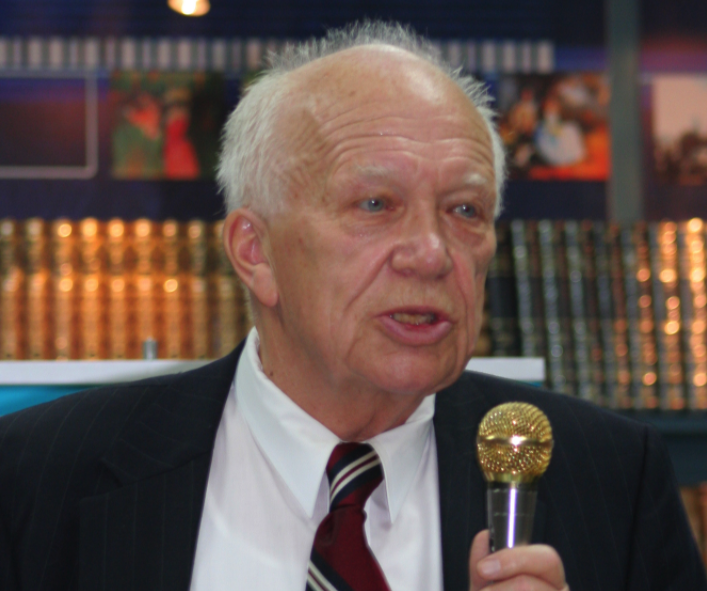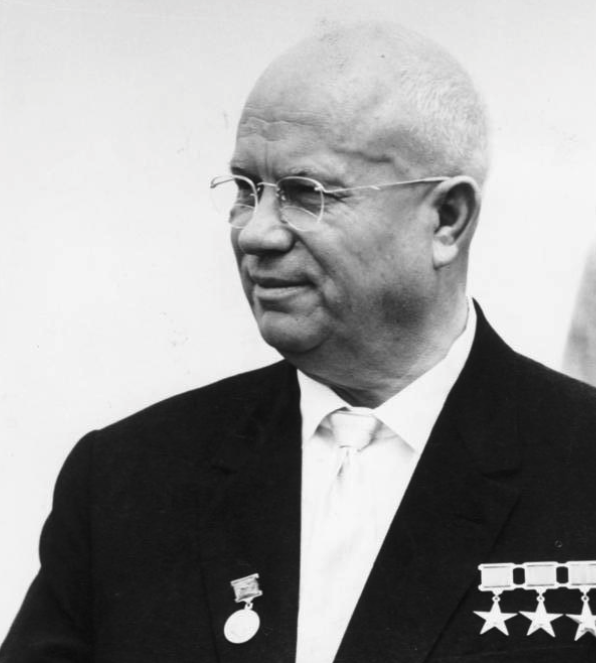Sergei Khrushchev, the son of late Cold War-era Soviet leader Nikita Khrushchev who became a U.S. citizen in 1999, was found dead at his Rhode Island residence last week, according to authorities. He was 84.
Gunshot Wound to the Head
Police went to Sergei's home in Cranston early June 17 after receiving a call from his wife. When officers arrived at the scene, they found him dead with a gunshot wound to the head, apparently self-inflicted, according to Cranston, R.I., Police Maj. Todd Patalano.
Patalano pointed out that "there were no immediate signs of outside foul play." He added that crime scene investigators and the medical examiner conducted an investigation of the scene before the body was sent for an autopsy. Patalano added that the investigation has been closed and no criminal charges were filed.
Rocket Scientist, Cold War Teacher

Sergei was a rocket scientist in the Soviet Union who moved to Rhode Island with his wife, Valentina, in 1991 shortly after the Soviet Union dissolved, to give lectures on the Cold War at the Brown University.
He and his wife became citizens of the United States in 1999 and held dual citizenships in Russia and the U.S. As a rocket engineer in the Soviet Union, he worked on guidance systems for missiles, including cruise missiles launched from submarines. Earlier, working on the Soviet space program including moon vehicles, he had helped the Soviets win the early stages of the space race.
Later in life, he became a senior fellow at Brown's Watson Institute and a fellow at Harvard's John F. Kennedy School of Government. He also taught at the Naval War College in Newport on Russian economic and political reforms, U.S.-Soviet relations from 1950-1964, the history of the Soviet space program and his father's economic, political and security reforms.
Nikita Khrushchev

Sergei's father Nikita Khrushchev led the Soviet Union during the height of the Cold War, succeeding Josef Stalin following his death in 1953.
Once considered a Stalin ally, Nikita Khrushchev shocked the Soviet Union by denouncing Stalin and the crimes he committed in a "secret speech" to Communist party comrades, which reportedly provoked deep shock among the audience members and even caused some of them to have heart attacks.
The former soviet leader's relationship with the West turned sour in 1960 after the Soviets shot down an American U-2 spy plane deep inside their territory. Tensions reached a high point in 1962 when the US discovered Soviet nuclear missiles stationed in Cuba in response to US's failed Bay of Pigs invasion. This led to a 13-day stand-off between the US and Russia in what became known as the Cuban Missile Crisis.
"We will bury you" is a phrase that was famously used by the Soviet leader while addressing Western ambassadors at a reception at the Polish embassy in Moscow in 1956. "We will take America without firing a shot. We do not have to invade the U.S. We will destroy you from within," he reportedly said in his speech.









